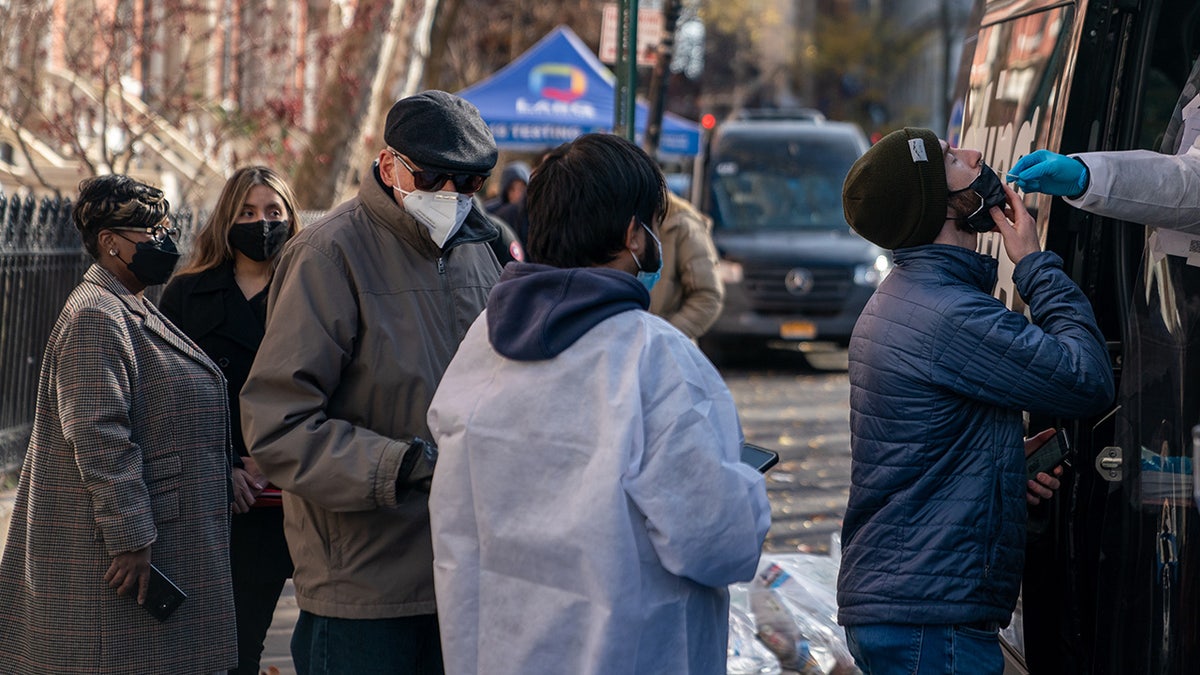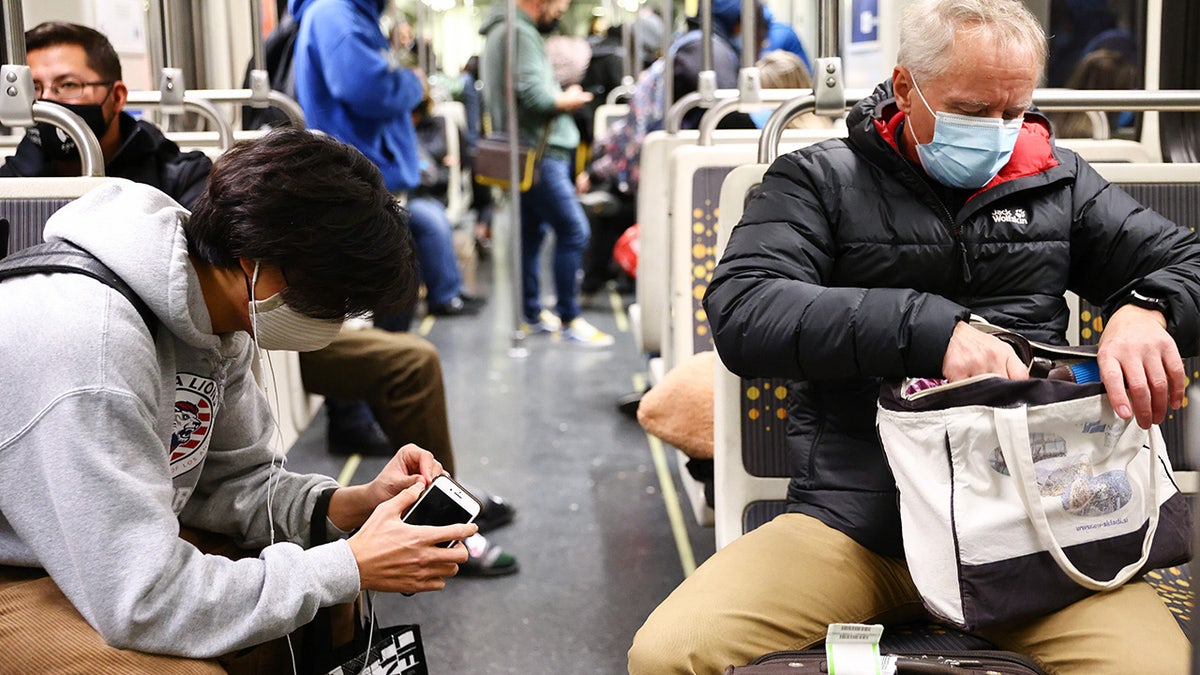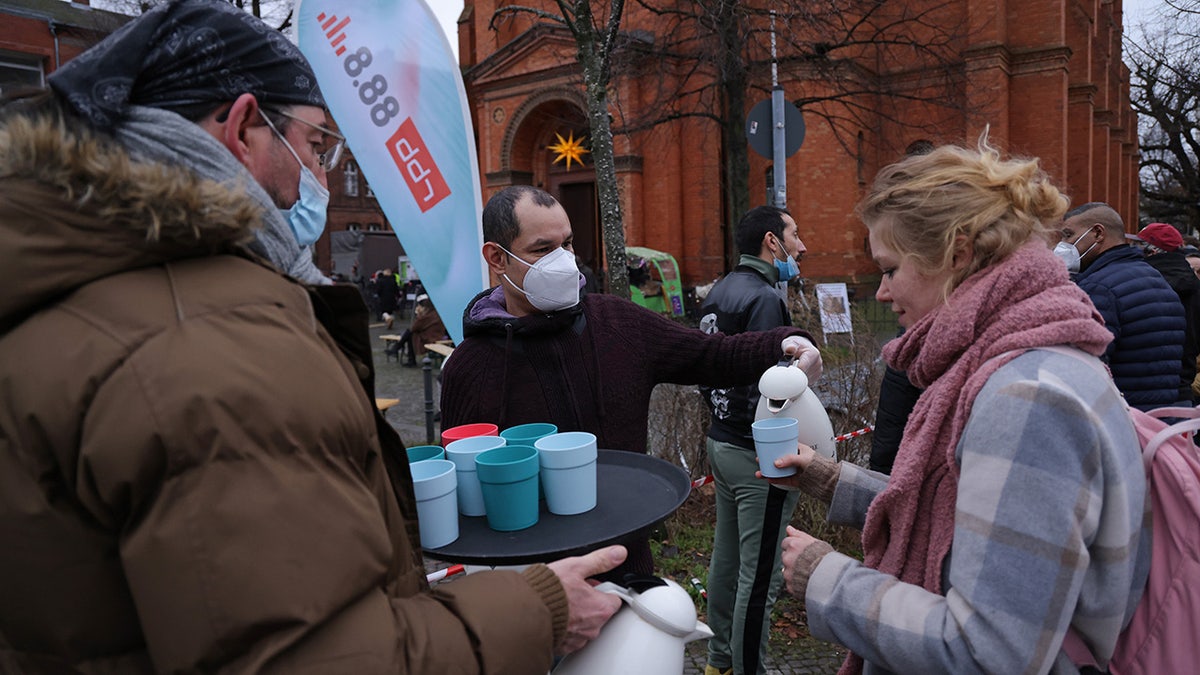How effective are vaccines with omicron variant?
Dr. Janette Nesheiwat analyzes the transmissibility of the omicron variant and vaccine effectiveness.
Some health officials have expressed reserved optimism that the coronavirus omicron strain could be a significant step in the pandemic's transition to becoming endemic, with one expert calling initial studies "the ideal situation for a virus."
Dr. Adam Koppel, the managing director of Bain Capital Life Sciences, told the Massachusetts High Technology panel on Tuesday that if the projections are true and omicron becomes the dominant global strain, it will "enable us to more quickly get to an endemic state as opposed to a pandemic state where we can live more regularly with the virus more similar to the flu than what COVID has looked like," the Boston Herald reported.
COVID-19 PANDEMIC DEATH TOLL TOPS 800,000 IN U.S.

A person has a COVID-19 test administered at a walk up testing site on December 15, 2021 in New York City. (Photo by David Dee Delgado/Getty Images) ( David Dee Delgado/Getty Images)
Scientists studying the variant have stressed that there is still much to be learned about the new variant. They say they are troubled by its transmissibility and insist that we still do not have a clear picture as to why it appears less severe than, say, delta. It may be infecting younger, healthier individuals. Researchers from the University of Hong Kong seemed to support earlier studies in South Africa that found the variant highly contagious, but less severe.
CHILDREN'S COVID-19 CASES UP 32% FROM TWO WEEKS AGO, PEDIATRICIANS REPORT

People wear face coverings while riding a Los Angeles Metro Rail train on December 15, 2021 in Los Angeles, California. (Photo by Mario Tama/Getty Images) (Mario Tama/Getty Images)
They found that the variant infects people about 70 times faster than earlier strains but replicated less efficiently—about 10 times lower in lung tissue, Bloomberg reported. The report said that early indicators say most of those infected don’t need oxygen nor do they require ICU care. But the sheer amount of cases could still put serious pressure on hospitals.
CLICK HERE TO GET THE FOX NEWS APP

A volunteer distributes hot tea to people waiting in line to be inoculated against Covid-19 outside the Twelve Apostles Church on December 15, 2021 in Berlin, Germany. (Photo by Sean Gallup/Getty Images) (Sean Gallup/Getty Images)
In South Africa, although case numbers are rising, hospital admissions for adults diagnosed with COVID-19 are 29% lower compared to the wave the country experienced in mid-2020, after adjusting for vaccination status, according to the new analysis. Still, some experts cautioned that it’s too soon to draw conclusions since the variant is quite new and hospitalizations can lag weeks behind infections.
CLICK FOR THE LATEST ON THE CORONAVIRUS
"By infecting many more people, a very infectious virus may cause more severe disease and death even though the virus itself may be less pathogenic," the lead author in the Hong Kong study said, according to Bloomberg.
An analysis Tuesday of data from South Africa, where the new variant is driving a surge in infections, suggests the Pfizer vaccine offers less defense against infection from omicron and reduced, but still good, protection from hospitalization.
The Associated Press contributed to this report







































